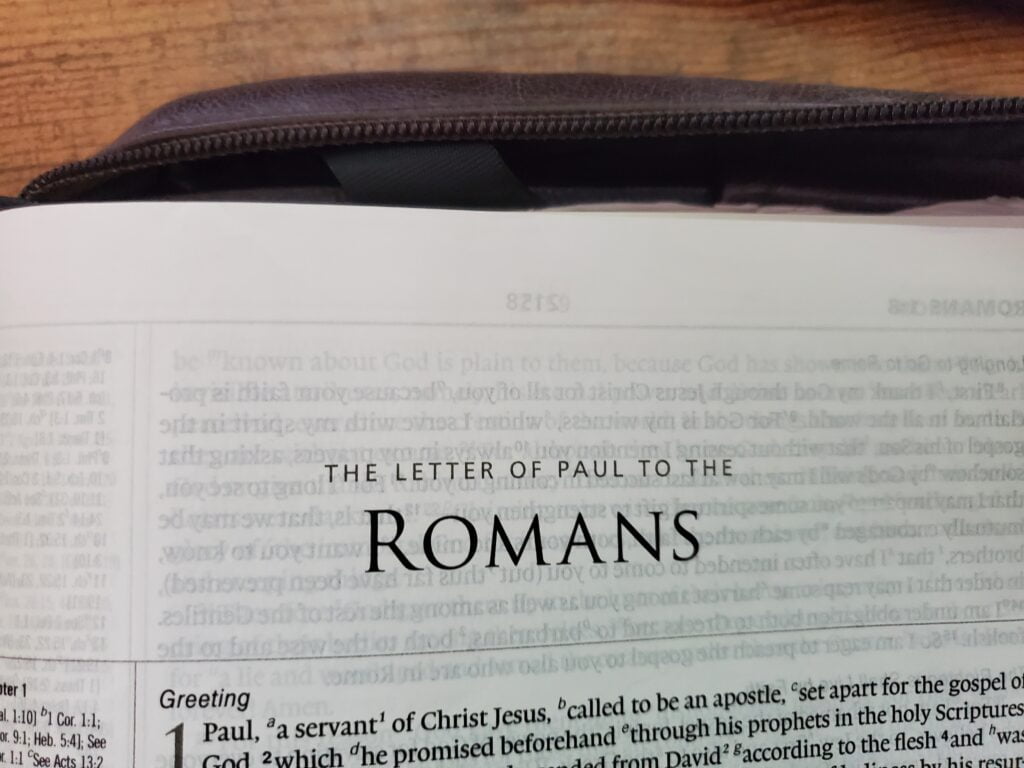⏱️ Estimated Reading Time: 4 min read
Romans 6:15-19, “15 What then? Are we to sin because we are not under law but under grace? By no means! 16 Do you not know that if you present yourselves to anyone as obedient slaves, you are slaves of the one whom you obey, either of sin, which leads to death, or of obedience, which leads to righteousness? 17 But thanks be to God, that you who were once slaves of sin have become obedient from the heart to the standard of teaching to which you were committed, 18 and, having been set free from sin, have become slaves of righteousness. 19 I am speaking in human terms, because of your natural limitations. For just as you once presented your members as slaves to impurity and to lawlessness leading to more lawlessness, so now present your members as slaves to righteousness leading to sanctification.”
Paul clearly teaches that we can obey God only if we are under grace. Contrary to the Judaism of the Apostle’s day, God’s law—be it the Mosaic law or the law of God revealed in nature—does not solve the problem of sin. In fact, to be under law is to be under the reign of sin (Rom. 6:14). Law has no power to make us righteous. Actually, looking to our law-keeping as the basis for our righteousness before the Lord increases transgression and diverts us from the answer to sin God has provided, namely, His grace in Christ (Rom. 7:7–12; 10:3–4).
In Jesus, we are no longer under the law, but that does not mean lawlessness. Freedom from the law is liberty from sin’s dominion and the law’s condemnation (6:14). To not be under the law means we are not under the old covenant, an era of disobedience. Though there were exceptions—believers such as Moses, Ruth, Samuel, Hannah, and others—the history of God’s people before Christ is defined mostly by law-breaking and faithlessness in Israel and in the nations to whom Israel was called to be a light. Though new covenant believers sin, Paul sees our era as characterized by God’s grace and empowering Spirit. In the new covenant, the gospel converts the nations, and they serve the Lord (1:5; 2 Tim. 1:7).
Practically speaking, this means freedom from slavery to the law (and therefore sin) is slavery to obedience and righteousness (Rom. 6:16–19). Paul explores this truth in today’s passage, noting that those who are in Christ have Him as their master now, and their obedience to Him leads to righteousness and life. Let us be clear—the Apostle is not saying that we earn our redemption. Nothing we can do, even with God’s help, is good enough to secure our place in the kingdom. As in Romans 2, Paul is speaking about the sequence of salvation. We are justified on account of Christ’s righteousness and our eternal life is secure, but justification is not the whole of salvation. Sanctification—being conformed in practice to the holiness of Jesus— always follows justification. Our justification gives us the kingdom citizenship that cannot be lost, and as we live in Christ, the Lord begins to make us godly even now in preparation for the perfect godliness we will enjoy in the age to come. John Calvin comments, “We are not freed from the bondage of the law that we may sin; for the law does not lose its dominion, until the grace of God restores us to him, in order to renew us in righteousness: and it is hence impossible that we should be subject to sin, when the grace of God reigns in us.”
Coram Deo
In his commentary Romans, Dr. R.C. Sproul discusses the relationship between justification and sanctification: “We are not going to make it on the basis of our righteousness, but only on the basis of faith. If the faith is genuine, the fruit of that faith will be real righteousness.” Declarative righteousness—God’s pronouncement that the merit of Christ is imputed to our accounts—is what gives us peace with God. But through His Spirit, the Lord will sanctify His people.
Slaves to Righteousness, Copyright (2021), Ligonier Ministries.



